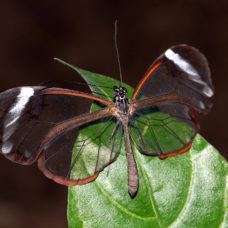Scientists have developed an extra-uterine womb, called a “biobag,” and successfully used it to grow baby sheep. This artificial womb could help bring prematurely born babies to term as well as enable a new type of surrogacy.
If you’re Lincoln Six Echo from the movie, The Island, this is where it all starts. First, they’re growing baby sheep and saving severely premature babies. The next thing you know, our insurance policies are cloning humans identical to us. When our organs fail, we just trade out with our clone. The only question is: who will be able to afford that?
Birth is considered preterm if it happens before completing the 37th week of pregnancy. In the U.S., according to stats provided by the CDC (Centers for Disease Control and Prevention), about 1 in 10 pregnancies ended in preterm birth in 2015 (30,000 babies). Globally, rates range between 5% and 18%, with 15 million preterm babies born annually.
The earlier the birth happens, the fewer chances of survival for the baby: at less than 23 weeks, the chance is close to zero. The chance increases exponentially after week 25, reaching about 80%. Preterm or premature birth is the leading cause of newborn deaths, estimated at around one-third in 2013. Babies who survive would face short and long-term health complications.
Fetal Lambs Grown in Womb-Like Device
Scientists at Children’s Hospital of Philadelphia designed an extra-uterine incubation system that could reduce mortality for preterm children. The device, described in a paper published in the journal Nature, is filled with synthetic amniotic fluid that allows the fetus to breathe, supporting the growth of the lungs, much like the mother’s placenta would do. Oxygen-rich blood is pumped into the bag and excess CO2 is removed.
The device would enable extreme preterm babies the chance to develop their lungs and other vital organs, serving as a bridge to support them during a critical period before getting to the outside world.
/cdn0.vox-cdn.com/uploads/chorus_asset/file/8404451/Figure.png)
CHOP researchers, led by fetal surgeon Dr. Alan Flake, have gone through four prototypes, including a glass incubator tank, before settling on the current design. They conducted pre-clinical studies and tested the artificial womb with fetal lambs, in which the prenatal development of these organs is very similar to that of humans.
Biobag Making Surrogacy More Accessible
Previous womb-like incubator systems have lasted only 60 hours, but CHOP’s device operates for up to four weeks. The baby sheep remained healthy and showed normal functions and organ maturation; they breathe, swallow, open their eyes and grow wool. In the next decade, the team envisions to having a licensed device to support premature infants and help get them over the 28-week threshold, instead of being artificially ventilated inside current incubators.
CHOP's biobag growing baby sheep means cloning humans is coming soon.Click To TweetAside from supporting naturally born babies, the biobag, once it’s capable enough to cover the whole gestation period, could serve as a surrogate device. Women with infertility problems or conditions that make pregnancy hazardous, or even as a personal or professional decision, could use such a “birth mother” device.
Hopefully, this would cut through expensive surrogacy programs that labor to find compatible mothers among a sea of willing applicants.
First Step to Cloning Humans
Or maybe this technology will be harvested for less humanitarian and more profit-driven purposes. Perhaps then we will really see cloned organ surrogates like from the movie, The Island. What would you do if we started cloning humans for organ reclamation?



















wow… am speechless